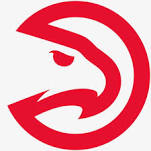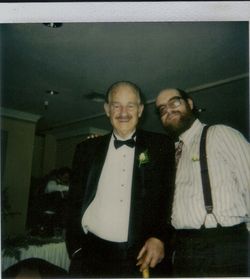One of the most important sports stories in decades is unfolding just miles from my home and hardly anyone is covering it. No one is covering it right.
That story is the Atlanta Hawks, our local basketball team. There are NBA fanatics who know the team is having a grand season so far, the “Beast of the East” at the regular season’s halfway point, with just 8 losses.
But when I went to New York this week and asked folks about the Hawks, they just shrugged their shoulders, insisting the team will “come back to Earth,” implying they’re doing it with mirrors. Maybe, one “expert” said, they will make the conference finals this year.

Coach Bud didn’t invent the way the Hawks play. He was formerly an assistant under what are now the defending champion San Antonio Spurs, which have been working this kind of magic for years. And the real genius we should be talking about is the Spurs’ coach, Greg Popovich. Their general manager, Danny Ferry, also worked under “Pop.”
The Spurs, and now the Hawks, play the game differently from almost every other professional team. Watch them come down the floor and set up. They’re not “working the shot clock,” they’re fighting it, every second. Pass, pass, pass, pass – back and forth across the court they go, the ball always faster than any man can get to it. Pass until you get an easy shot, a clear lane to the basket, or an open three-pointer. Watch your teammates, so that when you do shoot, and miss, they have clear paths to the rebound.
Then get back, and get your hands out for every pass of the opponent. You know how they’re going to play it. Their point guard is going to bring it up, send it to the shooting guard, who’ll send it back to start a pick-and-roll, or look for some big body “on the low block” who can “post up” the other team’s big man.
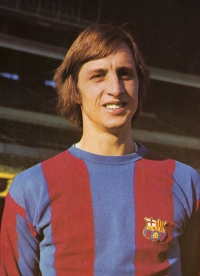
Before Cruyff’s concept of “total football” took off players had set positions. Defenders defended, forwards shot, midfielders ran around the center of the park. That’s all changed now. Defenders have to get into the attacking third and put in crosses, forwards have to defend all over the park, and midfielders can pop up anywhere. The idea of a big “center forward” is passe – the guys who score now are more likely to be small and super-quick, facing the goal rather than having their backs to it.
It’s a different game than it was, and any soccer fan worth his game scarf will tell you that.
That’s what Popovich has done to basketball, and what Budenholzer has brought to Atlanta. There’s no 1, 2, 3, 4, and 5, there are five guys of various sizes playing together. The success of “total basketball” was obscured with the Spurs because the Spurs had stars – Tim Duncan “the big fundamental,” Tony Parker the great French guard, Manu Ginobili the great Argentine shooter. Yet they won the NBA title last June despite the fact that all these guys are well north of 30. The MVP of the finals was a guy named Kawhi Leonard, a guard who wasn’t one of the “big three,” and since he’s hurt this year, and all the stars are a little bit older, and the Spurs are playing in the tough Western conference, things aren’t going that well. So the real story is being ignored.
Save for the Hawks.
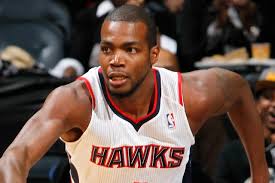
Let me tell you what they did this week. They went into Philadelphia and put three of their starters in street clothes. They won by 20. Then they flew to Boston and put the other two starters in street clothes. Same result.
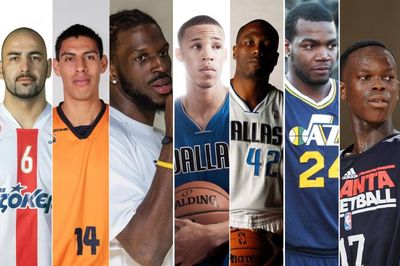
The games are taking on a familiarity. They start off even for the first eight minutes, then the Hawks bring in some subs and take a small lead. Maybe the other team gets some of that back, but somewhere the Hawks go on a run. By the end of the game they’re playing guys like Adreian Payne you couldn’t pick out of a lineup and win going away.
It’s the system that’s winning. No one else is playing this system with this many players under 30. This team can win a title.
What does that mean for the sport? It means you’re covering it wrong. It means you’re treating it like tennis. It’s all about one guy with you – it’s all about LeBron or it’s all about Kobe or it’s all about Derrick Rose, or Dwayne Wade, or Kevin Durant, maybe Atlanta native Dwight Howard. It’s all about building a “big three.”
But it’s not.
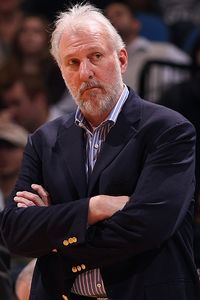
I have no idea how all this is going to work out. I’m not going to predict a championship. I don’t even know who the owner is going to be when the trophies get handed out – the team is for sale because the current group could never get along and should never have gotten together.
What I do know is that the game of professional basketball has changed, forever. When you watch the Atlanta Hawks, you’re seeing the template for every other great team you’ll see in the future. Which means every team, and every city, can now hope for a championship, every year.
Just play together. It’s depth that’s going to win, depth and unselfishness, depth, unselfishness, and a little luck with injuries. What the Atlanta Hawks are demonstrating right now, what the San Antonio Spurs showed but you didn’t see, is that basketball has changed. It’s not tennis. It’s about systems, not about stars. It’s about team.


